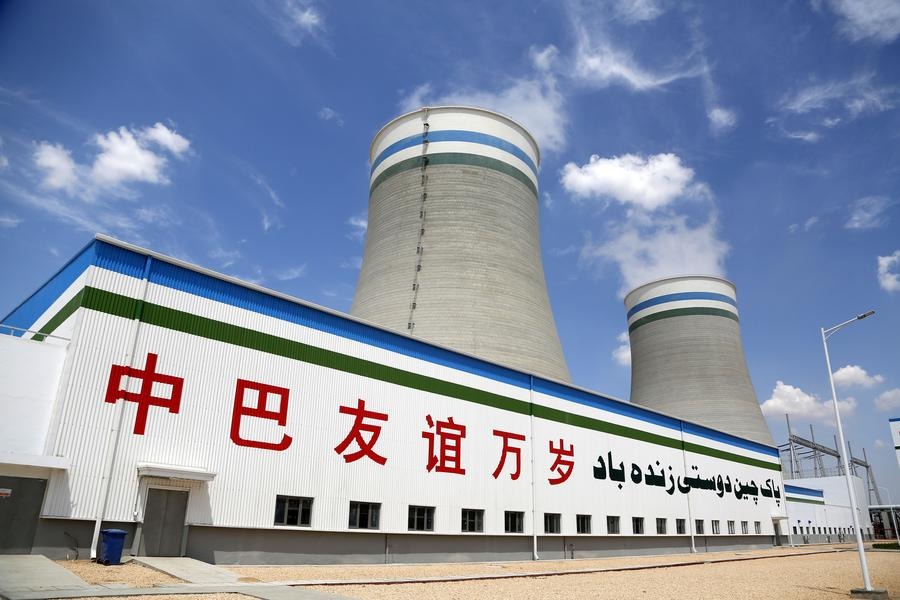Sports develops in tandem with economic growth


Editor's Note: Four decades of reform and opening-up have not only turned China into the world's second-largest economy but also changed its people's way of life. With Beijing hosting the 2022 Winter Olympic Games, a veteran journalist with China Daily analyzes the changes in people's attitude toward sports.
Playing sports, especially organized sports, used to be a luxury for ordinary people like us four decades ago. The reason: poor nutrition partly due to the food rationing system.
The few stadiums and gyms that the big cities had were used by provincial- and national-level athletes for training. Common people could enter them only as spectators to watch some sports tournaments.
School playgrounds usually had natural surfaces with seesaws, swing sets, slides, chin-up and parallel bars, some cemented ping-pong tables, and one or two basketball courts. During the cold winters, the best physical education teachers could do was to ask the students to run a few laps of the playground to get some exercise as well as to keep warm.
Owing to the lack of training facilities and students' reluctance to play sports, China's overall competitive level in sports was low. And although sports schools were established in cities to make Chinese athletes more competitive on the world stage, the relatively small amounts that were invested in sports were spent on nurturing some high-potential talents.
However, the efforts of the authorities eventually bore fruits in 1981 with the Chinese women's volleyball team winning the world championship. Three years later, shooter Xu Haifeng became China's first Olympic gold medal winner.
Such achievements, since they were rare, evoked not only an emotional response from the people but also encouraged millions of youths to take up sports as a career. So excited were Peking University students after the national volleyball team's victory that they began shouting slogans like "Revitalizing the Chinese nation".
Thanks to the remarkable economic achievements following the launch of reform and opening-up, China's investments in sports have been growing steadily, both to nurture top-class athletes and improve sports facilities for the benefit of the common people.
China has invited the best coaches from around the world to train Chinese athletes and sent hundreds of swimmers, soccer players and winter sports athletes to other countries to receive advanced training. Also, in its bid to host the ongoing 2022 Winter Games, the Chinese sports authorities promised to encourage as many as 300 million people to take up winter sports.
To honor their vow, China's sports authorities shifted their attention 10 years ago from competitive sports, which fetch medals, to encouraging more people to play sports. Millions of pieces of exercise equipment have been installed in community parks and neighborhood corners in cities and many villages with donations from sports lotteries. And special tracks have been built for joggers and cyclists in parks.
More important, the authorities have asked all stadiums, gyms and indoor swimming pools, no matter State-invested or privately owned, to keep their doors open to the public.
Besides, marathons, which arouse mixed feelings in me because I hated long-distance running as a poor, hungry student, have become very popular among Chinese youths. In fact, before the COVID-19 pandemic broke out, China used to host about 2,000 marathons a year, drawing millions of participants.
Also, education authorities have made good physical health a key criterion for students to get enrolled in a good higher education institution. And many schools in China today have playgrounds with artificial turfs or special surfaces, and gyms with all kinds of equipment. Some schools in northern China, where winters are very cold and severe, also have ice-skating rinks and curling courts.
While my generation enjoyed sports mostly as spectators, the present generation enjoys sports both as athletes and spectators. And unlike my generation which went crazy at China achieving a small breakthrough in an international competition, the present generation knows the country is a major sports power and calmly watches China competing with the United States for gold medals at the Summer Olympics.
Familiar with China's sports achievements in recent years, many youths must be watching the ongoing Beijing Winter Games while having, for example, a hotpot dinner with friends, with some of them collecting their sports gear after dinner and driving to an ice-skating rink or skiing ground to burn the extra calories. For many youths today, sports is about trying their hands at one of them.
The author is former deputy editor-in-chief of China Daily.
kangbing@chinadaily.com.cnIf you have a specific expertise, or would like to share your thought about our stories, then send us your writings at opinion@chinadaily.com.cn, and comment@chinadaily.com.cn.


































